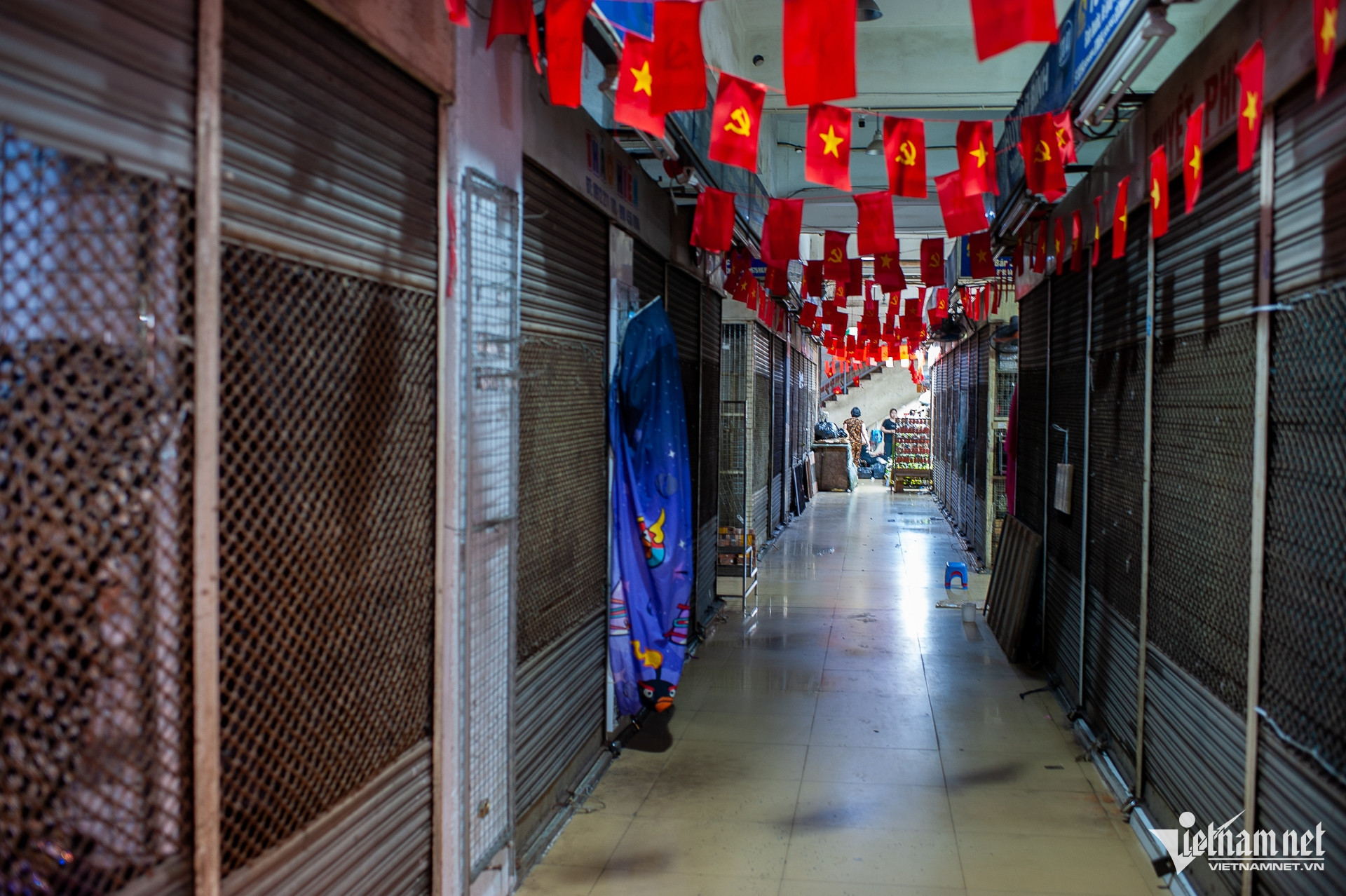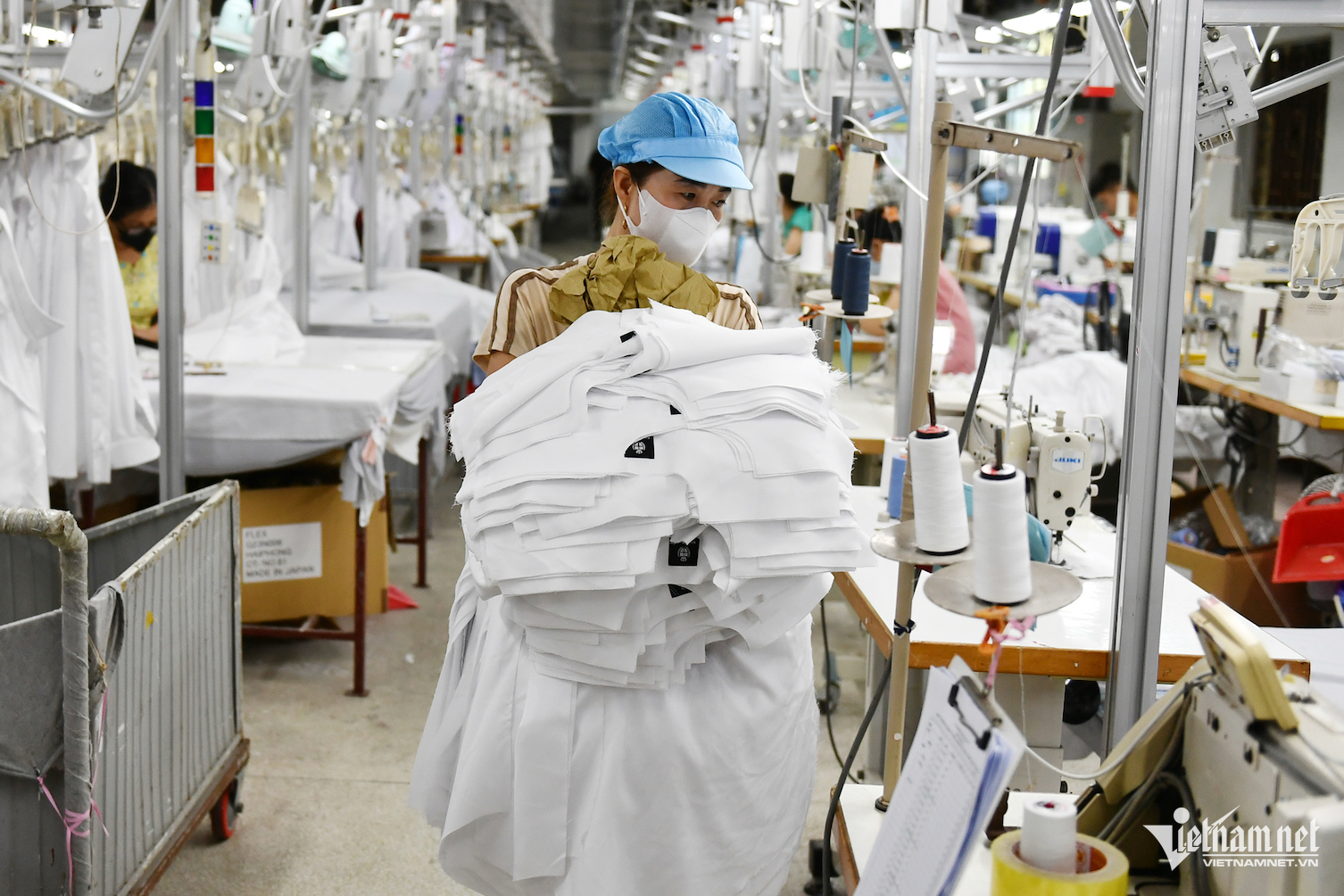This was the story shared by Nguyen Dang Sinh, Chairman of the Vietnam Association for Anti-Counterfeiting and Trademark Protection (VATAP), in a recent interview with VietNamNet. He emphasized the urgent need to eliminate fake and substandard products to protect both consumers and legitimate businesses.
Fake goods spread openly across markets

In recent months, an unusual trend has emerged in many cities and provinces: mass closures of kiosks and shops in markets. Most of these stores sold apparel, footwear, cosmetics, handbags, and sporting goods.
At a major commercial center in Ho Chi Minh City, for instance, when authorities arrived, security guards immediately activated their radio system and used the center’s PA system to alert merchants to close their shops and avoid inspections.
According to VATAP Chairman Nguyen Dang Sinh, beyond factors such as e-invoicing requirements or the rise of cheap online retail, the primary reason for this phenomenon is the authorities’ intensified crackdown on counterfeit and imitation goods. Merchants are closing their shops temporarily to monitor the situation.
At Hanoi’s Dong Xuan Market, many stalls and kiosks were found shuttered.
Sinh explained that traders shut their doors because they lack the necessary documentation to prove the legitimacy of their goods. Simply put, they cannot verify whether the items they sell are genuine or fake. If they were dealing in authentic, properly sourced products, there would be no reason to fear inspections or halt operations.
“If you're selling genuine products with transparent origins, there’s no reason to worry,” Sinh said. “This situation clearly highlights the alarming extent to which counterfeit and substandard goods have flooded the market.”
He noted that counterfeit goods have long infiltrated every corner of the market, appearing openly in traditional markets, shopping malls, e-commerce platforms, and across social media - with prices so low they defy belief.
Despite repeated calls from the association, the issue remains unresolved.
“In the past, whenever we reported a counterfeit hotspot, authorities would respond. Now, during this nationwide crackdown, they’re discovering just how widespread the problem really is,” he remarked.
Sinh stressed that the persistent issue of counterfeits and knockoffs is partly due to lax enforcement and oversight by the authorities. Some have cited insufficient administrative penalties as a reason, but Sinh disagrees. “The real issue is whether authorities are willing to act decisively and consistently,” he said.
He also referenced Prime Minister Pham Minh Chinh’s remarks during a government meeting in May 2025: “When hundreds of tons of counterfeit goods are traded and stored - requiring warehouses, transactions, and logistics - and yet the authorities claim ignorance, there are only two explanations: either they’ve lost the will to fight or they’ve been corrupted. Both must be dealt with strictly.”
Genuine goods struggle to compete on price

Sinh warned that counterfeit and imitation goods have reached a critical, alarming level. Many recent raids have uncovered operations of substantial scale.
Even more concerning, many of the products involved were food, medicine, and dairy - items that directly impact consumer health.
Cracking down on fake goods not only protects consumers but also shields domestic industries and honest businesses. If counterfeit products are not eradicated, genuine goods will never be able to compete on price. Sinh pointed out that authentic items often cost twice or three times as much as their fake counterparts.
“Two years ago, one of our member companies, a diaper manufacturer, shared that they invested about USD 2 million into a production line. Their product sold for around USD 0.40, while counterfeit versions went for just USD 0.12 to USD 0.16. They simply couldn’t compete,” Sinh said.
Sadly, this is just one of many stories he's heard from businesses trying to sell authentic goods but losing out to cheaper fakes. Manufacturers of dietary supplements, milk, alcohol, and beer also complain that counterfeits - sold for half or a third of the price - are flooding the market, making survival difficult.
Since the Prime Minister launched a nationwide campaign targeting smuggling, commercial fraud, counterfeit goods, and IP violations, legitimate businesses have expressed relief. The crackdown gives them a better chance to thrive.
Sinh hopes that beyond the peak enforcement period from May 15 to June 15, authorities will continue strengthening regulatory oversight with regular inspections and enforcement to truly “clean up” the market.
Tam An